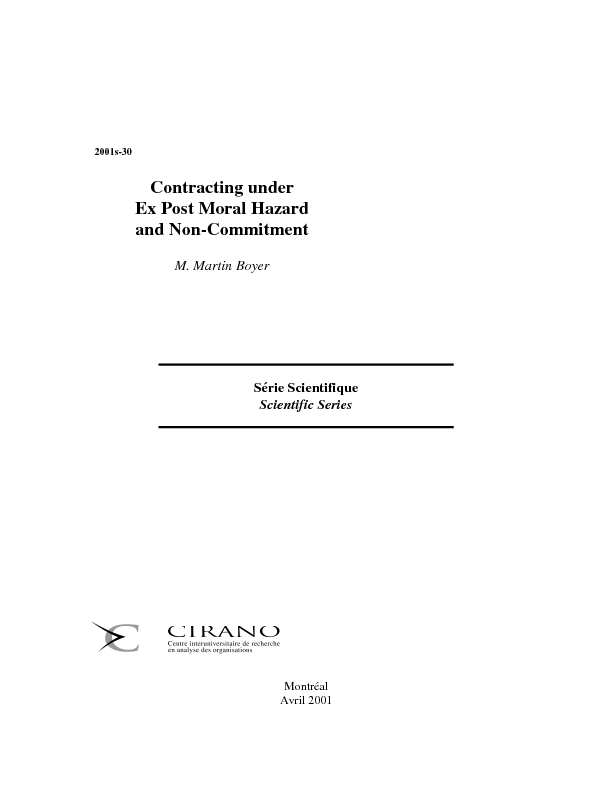Contracting under Ex Post Moral Hazard and Non-Commitment
This paper characterizes the optimal insurance contract in an environment where an informed agent can misrepresent the state of the world to a principal who cannot credibly commit to an auditing strategy. Because the principal cannot commit, the optimal strategy of the agent is not to tell the truth all the time. Assuming that there are T > 1 possible losses, and that the agent cannot fake an accident (he is constrained only to misreport the size of the loss when a loss occurs), the optimal contract is such that higher losses are over-compensated while lower losses are on average under-compensated. The amount by which higher losses are over-compensated decreases as the loss increases. The optimal contract may then be represented as a simple combination of a deductible, a lump-sum payment and a coinsurance provision.
[ - ]




